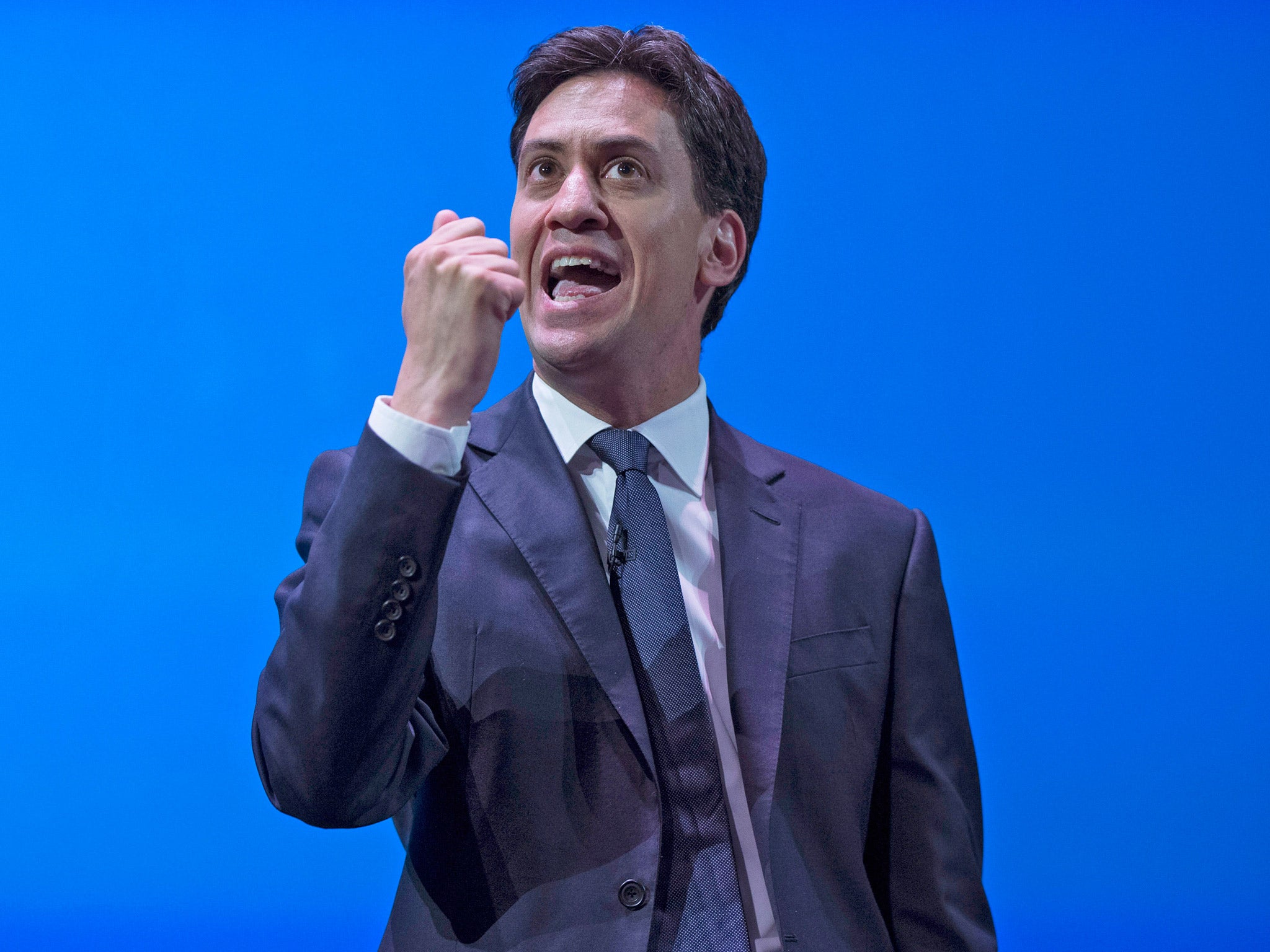Ed Miliband to resist trade union calls for renationalisation of railways if Labour win next election
Party leadership wary of strategy that would be portrayed as 'a return to Old Labour and British Rail' by the Conservatives

Your support helps us to tell the story
From reproductive rights to climate change to Big Tech, The Independent is on the ground when the story is developing. Whether it's investigating the financials of Elon Musk's pro-Trump PAC or producing our latest documentary, 'The A Word', which shines a light on the American women fighting for reproductive rights, we know how important it is to parse out the facts from the messaging.
At such a critical moment in US history, we need reporters on the ground. Your donation allows us to keep sending journalists to speak to both sides of the story.
The Independent is trusted by Americans across the entire political spectrum. And unlike many other quality news outlets, we choose not to lock Americans out of our reporting and analysis with paywalls. We believe quality journalism should be available to everyone, paid for by those who can afford it.
Your support makes all the difference.Ed Miliband will resist demands from trade unions and Labour members for the railway network to be taken back into full public ownership if he wins power next year.
A heated debate inside Labour will come to a head this weekend at a policy-making conference that will shape the party's general election manifesto. The vote on the railways will be a key test of whether Labour backs Mr Miliband's strategy of “big reform, not big spending” in the age of austerity.
Rail unions want Labour to commit to taking all the privately-run lines back into state ownership as soon as their franchises expire. Their proposal is backed by many constituency Labour parties, who point to opinion polls showing strong public support for renationalisation.
But Mr Miliband and Ed Balls, the shadow Chancellor, are wary of a strategy that would be portrayed by the Conservatives as “a return to Old Labour and British Rail,” the state-run network which existed before the Conservatives privatised the system in the 1990s.
The Labour leadership favours a compromise under which a publicly-owned firm, like the one which took over the East Coast line when its private operator went bust, would be allowed to bid against private companies such as Virgin Trains when franchises run out.
But Mr Miliband could face defeat on this issue at the meeting in Milton Keynes of Labour's national policy forum, on which the unions and local parties have a big share of the votes. The leadership will propose a “level playing field” between public and private bidders to ensure value for money for taxpayers, who subsidise the railways by £4bn a year, and passengers.
Labour sources insisted there was “no great row” and said that, after Mr Miliband's internal reforms, such debates were normally resolved by consensus rather than a showdown between the leadership and the party.
Today Labour's tax policies came under the spotlight when David Cameron accused the party of planning to squeeze the “squeezed middle” further by putting up their taxes. In the Commons, he seized on comments by Harriet Harman, Labour's deputy leader, who told LBC Radio: “I think people on middle incomes should contribute more through their taxes.”
But in a letter to Mr Cameron, Ms Harman told him his interpretation was “a lie.” She added: “It is utterly clear that this is not a call for higher taxes, but a defence of a system which has previously commanded wide support, in which people on middle incomes contribute more than people on lower incomes.”
Labour's policy forum will face calls from some activists and unions for a more distinctive approach on the economy. Some critics oppose Labour's plan to stick to the Coalition's departmental spending plans for 2015-16 and want an end to public sector pay restraint.
Some unions favour a ban on “zero hours” contracts, under which workers are on standby without minimum guaranteed hours. The forum will also discuss demands for the national minimum wage to be raised to the higher living wage— a move opposed by Mr Miliband, who wants to encourage firms to pay the living wage rather than impose it on them.
The conference will discuss Labour's policy on free schools and the integration of health and social care. A lively debate is expected over the leadership's plans to devolve powers to local government, which some activists oppose because it could create a “postcode lottery”.
Labour leaders will resist calls for a legislation to create wholly-elected House of Lords in the party's first Queen's Speech. It is likely to be delayed until a later year.
* Mr Miliband is expected to visit Washington next week, where he will have a brief “brush-by” meeting with Barack Obama at the White House and give a speech to a Washington think tank. As Leader of the Opposition, Mr Cameron has a similar meeting with George Bush in 2008.
Join our commenting forum
Join thought-provoking conversations, follow other Independent readers and see their replies
Comments